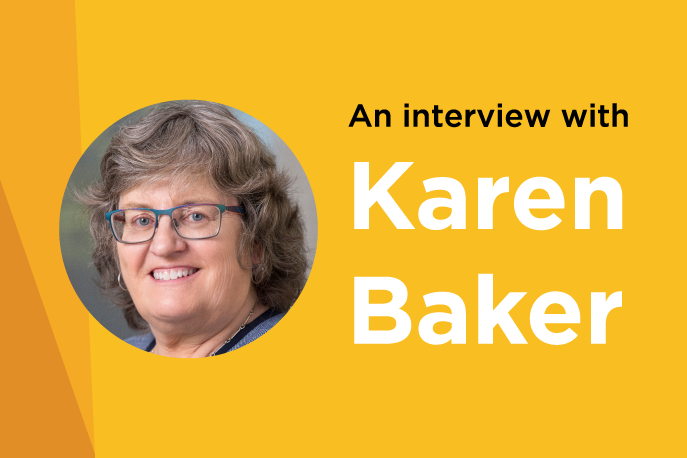Karen Baker’s career began in the late 1970s in Kansas, where she supported teens in the foster care system and their families. The work led her to a startling revelation: Many of the children she worked with had experienced severe childhood sexual abuse. After witnessing how that abuse created trauma that could reverberate across generations, Baker knew she wanted to take action on a larger scale to prevent this pattern from continuing.
Now the CEO of the Pennsylvania Coalition Against Rape (PCAR) and the National Sexual Violence Resource Center (NSVRC), Baker co-founded RALIANCE in 2015. We sat down with Baker this week to discuss her vision for RALIANCE and her views on the broader movement to prevent sexual violence.
RALIANCE: What drove you to co-found RALIANCE?
Baker: My co-founders and I – including Delilah Rumburg, who has since retired – established RALIANCE with the goal of making sexual violence prevention a mainstream conversation. Too often, people think that sexual harassment or abuse can be stopped by just identifying the individuals who are taking advantage of others, and firing them or arresting them. But preventing sexual violence requires all of us to play a role in building better cultures – there are many proactive things that organizations and businesses can do to establish safe and respectful environments that make a big difference. Even though there are over 1,300 rape crisis centers in the United States and 54 state or territory-level coalitions working to prevent sexual violence, many people are unaware of this critical work and are uncertain where to go for help, trainings, and resources. We created RALIANCE to fill that gap.
RALIANCE: Can you describe a historic moment that you believe shifted public understandings about sexual violence?
Baker: One historic moment that stands out to me is the conviction of former Penn State football coach Jerry Sandusky for multiple counts of child sexual abuse over many years. This case highlighted a couple of very important issues. First, people who are well-liked pillars of the community can still commit sexual abuse. In fact, Sandusky was able to leverage his influential position to maintain a horrifying pattern of abuse. It’s easier to think of people who sexually abuse children as being monsters and people we would know to avoid, but this misconception causes us to miss many behavioral warning signs, even though research indicates time and time again that most survivors are sexually abused by people they know and trust. The second way this situation was historic was that it illustrated that there are clear roles and responsibilities for universities and other organizations to play in protecting children, employees, and the public. This is not just an individual problem, but rather it is a systemic problem in our culture that must be greatly improved.
RALIANCE: What’s one thing you wish people better understood about sexual violence?
Baker: I wish more people understood that sexual violence is not primarily a problem for the criminal justice system to fix. It is a problem that we all need to fix in our own families, organizations, and communities. The biggest problem isn’t only the person who is abusing others. The problem is all the people around them who ignore it, minimize it, excuse it, or condone it. Collectively refusing to confront the problem enables abusers to continue their misconduct, which signals to other people that it’s ok for them to do as well.
RALIANCE: Do you think the movement to prevent sexual violence is on the right track?
Baker: I do. It’s been a long journey, and we continue to learn and build upon prior successes. The #MeToo movement helped to uncover the pervasiveness of sexual violence and exposed the way some people abuse their positions of power. Social justice movements – such as Black Lives Matter or the push for LGBTQ rights – are all important in helping to expose injustices. Collectively, we need to build a culture in which it’s commonly understood that every person is worthy of respect. When we do this, sexual violence will no longer be tolerated.
RALIANCE: It’s Women’s History Month, so we’re wondering – which history-making woman do you most admire?
Baker: There are so many courageous women to admire, but lately I’ve been thinking about Anita Hill. When she testified at the Senate’s confirmation hearings for a nominee who was being vetted for a seat on the Supreme Court in 1991, I couldn’t look away from the television. She articulated, and put a name to, sexual harassment. The vast majority of American women in the workforce had experienced sexual harassment in some way, but few before her had so publicly described it. I was struck by her boldness, clarity, and dignity. After her testimony, the topic of sexual harassment in the workplace became a common topic of conversation. Just three years later, the Violence Against Women Act was passed for the first time.
RALIANCE provides consulting, assessment, and employee development services to help build more equitable workplace cultures and create environments free from sexual harassment, misconduct and abuse. We stand ready to support your organization’s goals – contact us today at info@raliance.org to get started.

